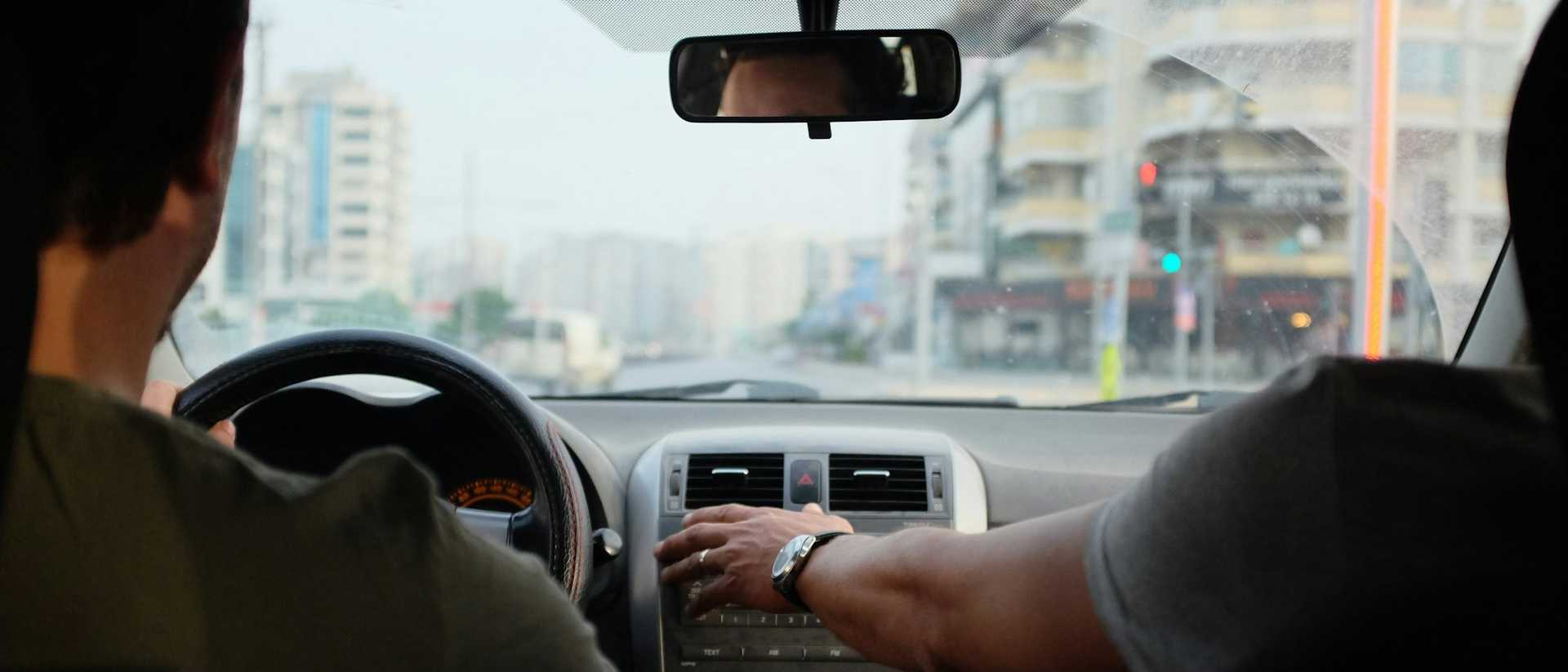What Is A Car Loan? What's Involved?

What is a car loan?
A car loan is pretty much exactly what it sounds like. It’s a type of loan that you can take out specifically for the purpose of financing a car or another type of vehicle.
Secured vs unsecured car loans
There are two main types of car loans: secured and unsecured. With a secured car loan, your car is used as collateral against the loan. This gives your lender the security that in the event you are no longer able to meet your repayment obligations, they can repossess the vehicle to recover their funds. Because your lender has this security, you will be viewed as a lower risk customer, and therefore able to access lower interest rates and often more favourable loan conditions. Secured loans are generally most suitable for new cars.
The second type of car loan is an unsecured loan. This means that your loan is not secured against your car or any other asset. With an unsecured loan, if you were unable to meet your loan repayments, the lender would not be able to simply repossess your car immediately. However, you might end up facing legal action, which would be a far messier process. You’ll also probably pay a higher interest rate than you would with a secured loan. Unsecured loans are most suitable for older and used vehicles.
Learn more: Secured vs Unsecured Car Loan - A Complete Overview
How does a car loan work?
When you enter into a car loan contract, you are making an agreement to pay back the amount of money you borrowed within a certain period of time, called a ‘term’. The length of the term is normally between 1 and 7 years, and you’ll make regular repayments over this time. These repayments are often made monthly, but some lenders offer weekly and fortnightly options as well. In addition to paying back the balance of the loan, lenders will also charge you interest on the loan as well as some fees and charges.
All of the rates that Driva offers are fixed interest rates, which means that the amount you pay each month will stay the same over the duration of the loan. This makes it easy to budget and plan for the future, as you won’t need to worry about your interest rate unexpectedly changing. However, it also means that the only way to take advantage of drops in interest rates and access a newly available low rate is to refinance your loan (and Driva can help with this!).
Some lenders may have the option for you to make a balloon payment at the end of your term. The balloon payment amount, which is also known as the ‘residual value’, builds over the duration of the loan by diverting a portion of your interest payments into it. This means that your monthly repayments will be reduced, but you’ll need to pay a final lump sum at the end of your loan term, which is normally a significant portion of your loan (ie: 10-15%). The main disadvantage is that this type of loan will cost more in the long term.
Getting a car loan with Driva
If you’re ready to start your car loan journey, you’ve come to the right place. Driva takes the hard work out of finding your best loan options by using our smart car financing platform to evaluate your profile against the 30+ lenders on our panel. To get started, you’ll just need to tell us a few details about yourself and the type of vehicle you’re looking to buy. From there, we’ll be able to give you personalised rates in less than one minute. We’ll run what’s called a ‘soft credit check’, which means we’re able to access the credit score that lenders will use to price your loan without impacting your score or recording an enquiry on your file. We also won’t share your profile with any lenders until you’ve decided which one you want to proceed with.
After your application has been submitted with the lender, approval generally takes between 2 hours and 2 days. Then, you’ll just need to give us your new vehicle details and proof of comprehensive car insurance, and we’ll release the funds!
If you’d rather get a pre-approved car loan, so you can start shopping with a set limit in mind, Drive can also help with that.
What’s the difference between a car loan and a personal loan?
As we’ve covered, a car loan is a type of loan that is strictly used to purchase a vehicle. By contrast, a personal loan can be used for a number of different purposes, and typically the borrower will be provided with a lump sum of funds for the borrower to use at their discretion. Because there are no restrictions on how the money must be spent, you’ll have a much larger degree of flexibility. For example, if you’ve borrowed more money than the cost of the car, you could use the leftover funds for other car-related expenses, like registration, insurance or petrol costs.
Because personal loans are an unsecured loan product, you’ll probably be charged a higher interest rate than you would with a secured car loan.
Learn more: Pros & Cons of Car Loans vs Personal Loans
Things to consider
If you’re considering getting a secured or unsecured car loan, there are a number of questions you should ask yourself.
- Have you considered all of your car financing options?
- How much are you able to pay in monthly repayments? What interest rates can you afford?
- How long do you want to have the loan for?
- What’s your credit score?
- Are you buying the vehicle for business purposes?
Other finance options
If you’ve decided that a car loan isn’t the right financing option for you, there are a number of other options available.
- Buying it outright. If you have enough cash on hand to consider buying your car outright, it is the most straightforward way to buy a vehicle (and also the cheapest in the long term). However, for many customers, buying outright isn’t a financially viable option.
- Hire purchase. If you’re buying your new vehicle for a business purpose, a hire purchase could be a great option. You’ll need to pay a deposit and then pay back the loan in regular instalments. At the end of the repayment period, you’ll gain complete ownership of the car.
- Credit card. If your credit card limit is high enough for the price of the car you’re looking to buy, you might be able to finance your new car with your credit card. This can be a great option when the price of the car is very low and therefore ineligible for a loan with many lenders.
- Chattel mortgage (business loan). This type of loan is popular among business owners and operators and has a similar structure to fixed-rate traditional mortgages. You’ll use your new car as security on the loan and will gain ownership of the vehicle immediately. You’ll then pay back the loan from the income that the asset generates in the business.
Got car loan questions?
Can I get a car loan for a second-hand vehicle?
Absolutely - no matter whether your car is brand new or second-hand, we can help you secure finance for it.
Can I get a car loan for another type of vehicle?
Driva can facilitate vehicle loans for all types of vehicles, from motorcycles to caravans.
What documents do I need to have on me?
In order to get your personalised quotes with Driva, the only documents you’ll need on you are your driver's license and your two most recent payslips. We’ll also need to access 3 months of bank statements, but we can help you do so online to save you the hassle of requesting the statements manually from your bank.
What if I have a bad credit score? Can I still get a car loan?
Every lender has different lending criteria, so even if you don’t have the best credit history, you still might be able to consider a car loan as a financing option. When you get your personalised rates with Driva, we’ll automatically tell you which lenders you’ll be eligible for with your current credit score.
How can I refinance my car loan?
If you’re not totally happy with your current car loan, or if you’re looking to access a better rate with your recently improved credit score, Driva can help you refinance your car loan. You’ll need to contact your existing lender to find out what the pay-off amount of your current loan is, before comparing your car finance options with Driva. We’ll give you personalised rates based on your profile and automatically tell you which lenders you’re eligible for a loan with.
What type of insurance do I need?
In order for your loan to settle with any of the 30+ lenders on our panel, you’ll need to take out comprehensive car insurance. This covers you for a number of different insured events like theft, fire and hail damage. In the event of a car accident, it also covers both your car and property as well as the other person’s car and property. You’ll need this in addition to compulsory third party insurance that’s legally required in order to register a car anywhere in Australia.
Summing up
Buying a car is a big commitment and it is important to thoroughly consider all the opportunities available to you. If you decide to obtain finance to fund your vehicle, a secured or unsecured car loan could be a great option for you.
If you have any queries please get in touch with our team of car finance experts here at Driva today on 1300 755 494 or email us at contact@driva.com.au. Or if you’re ready to obtain finance, our smart car finance platform allows you to access your best available rates from our panel of lenders in under 1 minute! The platform will automatically assess what type of loan is best for you based on your personal situation and the vehicle you’re looking at - so use it now to find a car finance option that suits your needs.


.png)







